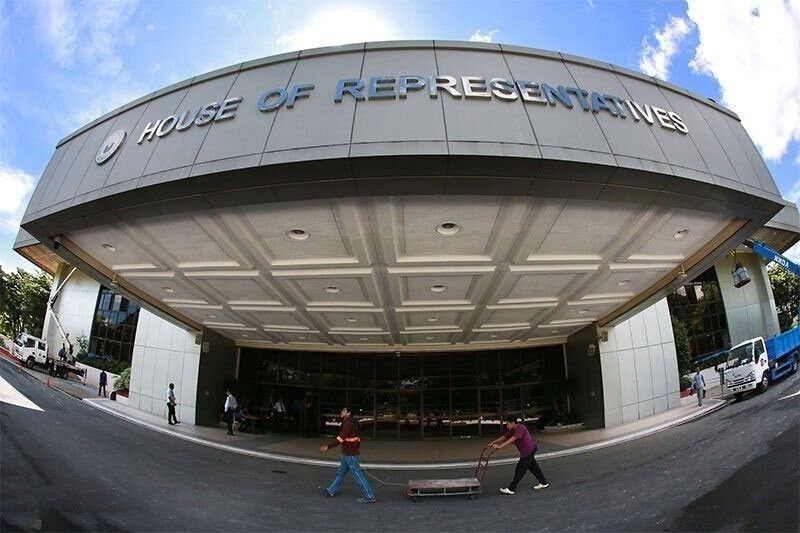House hands off on VP’s kill threat vs Marcoses

MANILA, Philippines — The House of Representatives will handle the impeachment cases filed against Vice President Sara Duterte, while her “kill threat” against President Marcos will be handled by the Department of Justice (DOJ).
Administration Reps. Geraldine Roman and Jude Acidre made the distinction over the weekend, saying House members will oversee impeachment complaints filed by progressive groups against Duterte, as prosecutors from the DOJ evaluate her criminal liability on her threat against Marcos, First Lady Liza Marcos and his cousin, Speaker Martin Romualdez.
“That (criminal liability) is a totally separate and independent process. We have our own separate functions or jobs to do. Insofar as we are concerned, we have a mandate to process this impeachment complaint,” Roman, House committee on women and gender equality chairperson, said.
Roman underscored the need for key government agencies to work independently of each other, but with utmost transparency as a matter of policy.
“We’re not the ones who are going to tell the justice department to do their work. We should let our government agencies do their work freely, independently, with transparency, with honesty,” the Bataan lawmaker added.
Acidre of Tingog party-list said, “It is very important for people to know the difference between the processes of the DOJ and those that we do here in Congress. The DOJ has a separate process as it is under the executive department, where their mandate involves the determination of criminal liability.
“Whereas in the impeachment process here in the lower chamber of Congress, this is a politically legislative procedure,” he explained further.
The impeachment complaints filed by civil society and religious groups last week accuse Duterte of culpable violations to the 1987 Constitution, graft and corruption, bribery, betrayal of public trust and high crimes.
Among these allegations are the reported death threats she supposedly made against President Marcos and Romualdez.
The statement had since sparked widespread criticism and is a key point in both the DOJ investigation and impeachment complaint.
Acidre and Roman have also expressed that the alleged threats floated by Duterte against her could be bogus, just like the fake names “Mary Grace Piattos” and “Kokoy Villamin” that allegedly received confidential funds.
“The supposed assassination threats against VP Duterte are fake – completely unfounded and baseless. They are as fabricated as the names ‘Mary Grace Piattos’ and ‘Kokoy Villamin,’ which were used to justify the alleged misuse of confidential funds,” Acidre pointed out.
“These threats, without solid evidence, are only in the mind of the VP. For someone with that mandate, to express this without clear evidence, is basically contributing to greater instability that does not help our country,” he explained.
He also stressed that Duterte is the only one “exposing” these threats as the Philippine National Police and the Armed Forces of the Philippines have reported “no credible threats” against her.
The Philippine Statistics Authority previously told officials of the House of Representatives that there are “no records” of either Piattos or Villamin as a person in their database.
For her part, Roman dismissed Duterte’s allegations, calling them “baseless” and suggesting they may only be a plea for sympathy.
“Honestly, I cannot feel or perceive that there is a threat to the life of the Vice President,” she told reporters in a briefing.
“Looking at the videos of her threats against the President and her claim that there are threats against her life, my interpretation there is that it’s just like a call for help,” she added. “Maybe she’s just seeking sympathy from her supporters.”
She also believes there is no real death threat against Duterte, while stressing that there are credible threats against President Marcos.
Impact on priorities
Amid the House of Representatives’ ongoing efforts to push impeachment complaints against Duterte, Sen. Sherwin Gatchalian raised concerns over its potential impact on legislative priorities.
While respecting Senate President Francis Escudero’s directive to avoid discussing the merits of the case as senators could be “potential judges,” Gatchalian emphasized the logistical and procedural complexities of handling impeachment proceedings.
“If the impeachment proceeds to the Senate, it will have a potential impact on our legislative priorities. We would still need to take care of so many priority measures,” he said.
Among the critical bills he is pushing are the banning of Philippine offshore gaming operators (POGOs) and reducing taxes in capital markets.
President Marcos ordered a total ban on POGO through an executive order that the next president could lift, thus senators believe that a law should be passed to mandate its prohibition.
Some members of the House of Representatives are pushing for impeachment complaints against Duterte, including signature drives to secure the necessary 106 votes for the case to reach the Senate.
Gatchalian pointed out that the immense focus and research required for impeachment would inevitably divert time and resources from legislative work.
With just six months left before the 19th Congress adjourns, the senator expressed doubts about the feasibility of addressing an impeachment trial alongside other pressing matters.
“There are only six months to go. It’s Christmas, that’s already a month away. Then we have the campaign period, that’s three months to go. We only have almost two months to talk about impeachment,” Gatchalian explained.
When asked if senators are preparing for a potential trial, Gatchalian clarified that he is still focused on legislative priorities.
“That (legislative work) is more important to me now because it will directly help our economy and our countrymen,” he said.
He admitted that there were informal discussions among senators on the matter but often limited to casual exchanges during informal gatherings.
While maintaining focus on legislative work, Gatchalian said he is also monitoring developments in the House. He acknowledged the fluidity of the situation, which requires attention as the complaints move forward.
As the House gathers signatures and debates the case, questions linger about whether there is enough time for Congress to address such a significant issue without compromising its legislative responsibilities. — Cecille Suerte Felipe
- Latest
- Trending































